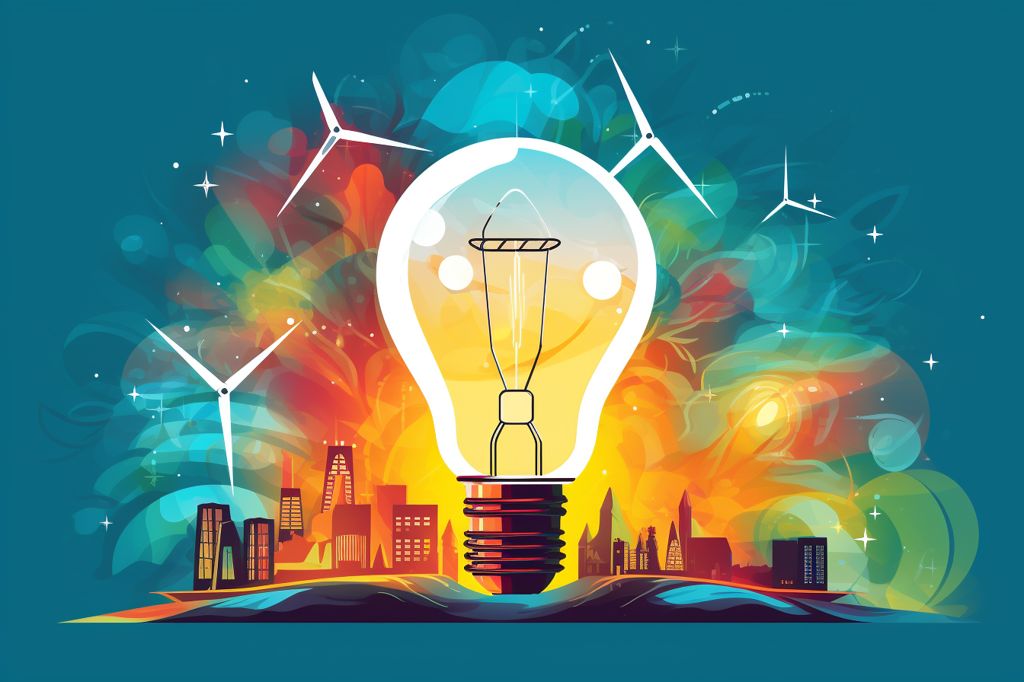South Africa’s Minister of Mineral Resources and Energy, Gwede Mantashe, recently spoke at the Black Business Council Summit, highlighting the country’s commitment to securing energy security and sovereignty while working towards a just energy transition. The minister emphasized the importance of balancing socio-economic development with environmental preservation.
National Development Plan (NDP) 2030
South Africa’s NDP 2030 serves as a long-term strategic blueprint to reduce inequality, eliminate poverty, and reduce unemployment. The plan envisions an energy sector that is reliable, efficient, socially equitable, and environmentally sustainable by 2030. The Integrated Resource Plan (IRP) also expands on the notion of energy security by prioritizing the development of diverse energy sources to meet growing electricity demands.
Current Power System and Challenges
South Africa’s current power system comprises a mix of coal, nuclear, gas, hydro, diesel, and renewable energy sources. Despite having an installed capacity of over 38 GW, the country still faces electricity supply-demand imbalances. To address these challenges, the government is taking a multi-pronged approach, focusing on improving Eskom’s Energy Availability Factor (EAF), procuring emergency power, and acquiring electricity from neighboring countries.
Procuring Additional Power
The Department of Mineral Resources and Energy has made significant strides in procuring additional power through the Independent Power Producer (IPP) office. Various initiatives aim to introduce 7786 MW of new capacity to the grid, with 2130 MW already connected. Plans are underway to operationalize an additional 150 MW under the Risk Mitigation Programme and 784 MW under Bid Window 5 by 2024.
Limited Grid Capacity
The challenge of limited grid capacity poses a significant obstacle to addressing South Africa’s energy crisis. To address this issue, the government has taken over a portion of Eskom’s debt, enabling the power utility to invest in transmission and distribution infrastructure. Despite the challenge, the Department is working on procuring an additional 10,000 MW of renewable energy, 3,000 MW of Gas-to-Power, 2,500 MW of nuclear energy, and 1,230 MW of battery storage.
Energy Sovereignty and Just Transition
Energy sovereignty is a critical aspect of South Africa’s energy strategy, given the energy poverty affecting the African continent. With approximately 600 million Africans lacking access to electricity, South Africa must prioritize universal energy access while working towards a just transition away from high-carbon emissions.
Minister Mantashe stressed the importance of a balanced approach, taking into account socio-economic needs and environmental preservation. He advocated for a just transition from high to low carbon emissions, rather than a binary shift from coal to renewables, which must be people-centered and consider the socio-economic conditions of communities directly affected by the energy shift, such as those in the Mpumalanga coal-belt.
Upstream Petroleum Industry and Gas Discoveries
Developing the upstream petroleum industry and incorporating new gas discoveries from South Africa and neighboring countries are key components of the nation’s energy strategy. This approach ensures that the country can transition at a pace and scale determined by its citizens, without external pressures from developed nations.
The Black Business Council Summit provided an opportunity to discuss the challenges and opportunities associated with South Africa’s energy security and sovereignty. With a just energy transition that considers socio-economic needs and environmental preservation, the country is taking essential strides towards a brighter, more sustainable future.









